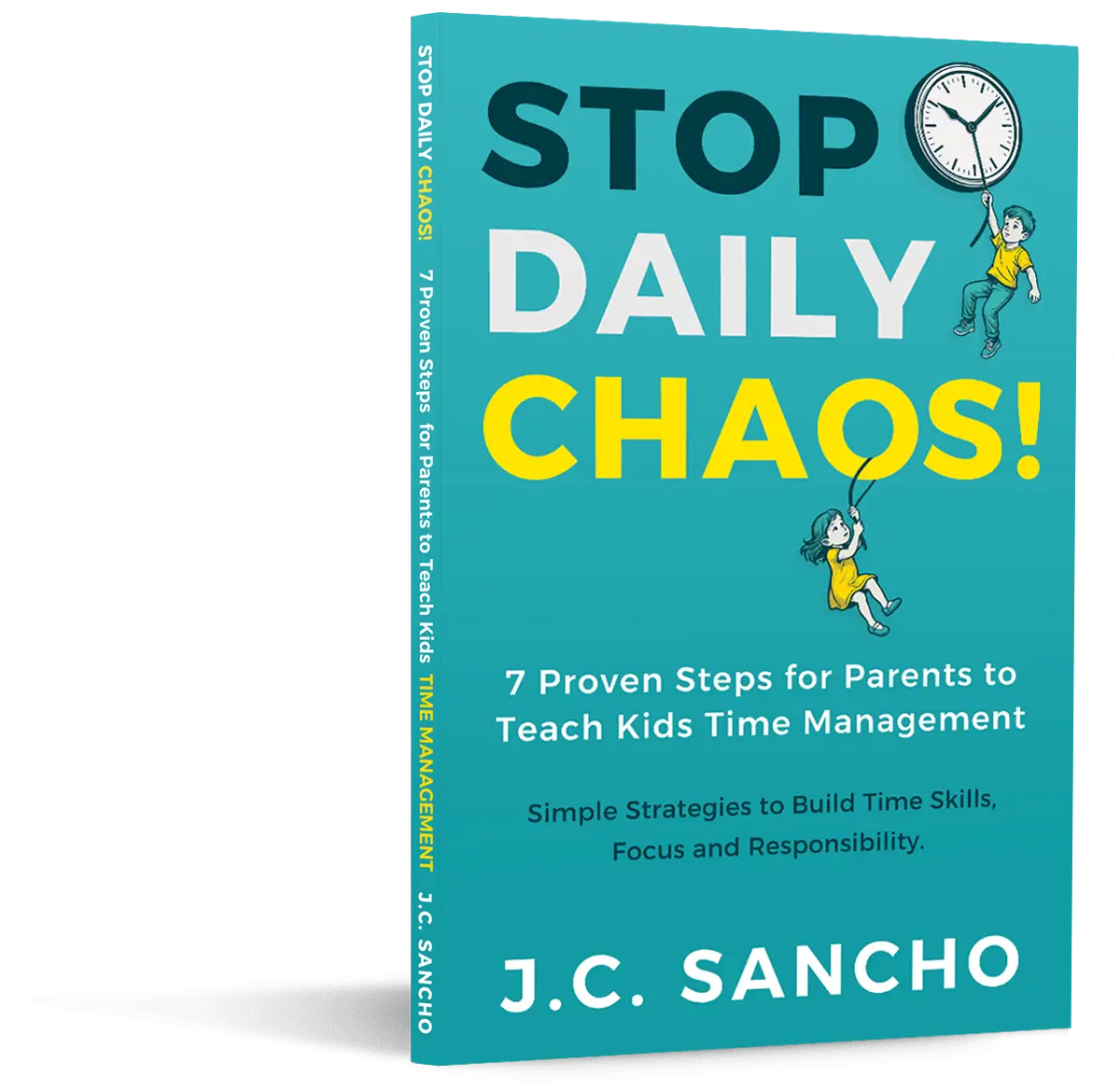A Survival Guide for Keeping Your Sanity
Let’s just put it out there—co-parenting with your ex is probably not what you pictured when you first became a parent. You probably imagined bedtime stories together, family game nights, and coordinating Halloween costumes. You definitely didn’t picture texting your ex about who’s picking up Jimmy from soccer practice while trying not to lose your mind.
But here you are. And here’s the thing I wish someone had told me earlier: co-parenting doesn’t have to be a constant battle zone. It won’t always be smooth sailing (let’s be realistic), but you can absolutely make it work without wanting to scream into a pillow every week.
I’ve learned this stuff the hard way, through trial and error, awkward conversations, and yes, a few spectacular failures. But I’ve also seen what works—not just in theory, but in real life with real kids and real emotions.
The Reality Check Nobody Prepared You For
First, let’s acknowledge what we’re actually dealing with here. You’re trying to parent with someone who you probably don’t want to have coffee with, let alone make major life decisions with. You might be hurt, angry, or just plain exhausted from dealing with them. And somehow, you’re supposed to put all that aside “for the kids.”
It’s hard. Really hard. And anyone who tells you to “just focus on the children and everything else will work itself out” has clearly never tried to coordinate a school pickup schedule with someone who used to leave their dishes in the sink for weeks.
The good news? You don’t have to be best friends to co-parent effectively. You don’t even have to particularly like each other. You just need some basic systems in place and the determination to stick with them.
Drawing Lines That Actually Hold
Boundaries aren’t just therapy speak—they’re your sanity savers. Think of them as the invisible fence that keeps your co-parenting relationship from turning into a free-for-all.
What Boundaries Actually Look Like
Communication boundaries:
- “We only discuss the kids, not our personal lives”
- “No calling after 9 PM unless it’s an emergency”
- “We communicate through text/email, not through the kids”
- “If you start yelling, I’m ending the conversation”
Logistical boundaries:
- “Pickup and drop-off happen at the agreed time, not whenever is convenient”
- “We don’t enter each other’s homes without permission”
- “We each handle our own household rules and discipline”
Emotional boundaries:
- “I won’t discuss your new relationship with our kids”
- “Don’t pump the kids for information about my personal life”
- “We don’t badmouth each other to the children”
Setting Boundaries Without Starting World War III
Here’s the script that actually works: “Going forward, I need us to handle things this way…” Not “You always…” or “You never…” Just a clear statement of what you need.
Example: “Going forward, I need us to stick to pickup times within 15 minutes. If you’re going to be later than that, please text me so I can plan accordingly.”
Is your ex going to love this? Probably not. Will they test the boundary? Almost definitely. That’s where the consistency part comes in—and that’s the hardest part.
When they push back (and they will):
- Stay calm and repeat your boundary
- Don’t justify or over-explain
- Follow through with consequences
- Document if necessary
Remember: You’re not trying to control their behavior; you’re controlling your own response to it.
Scripts That Save Your Sanity
I used to think having “scripts” sounded fake, like I was reading from a manual. Then I realized that having planned responses was the difference between getting sucked into drama and actually handling situations like an adult.
The Greatest Hits Collection
When they try to start an argument: “I can see this is important to you. Let’s focus on what’s best for [child’s name] right now.”
When they’re running late (again): “I understand things come up. In the future, please let me know as soon as you realize you’ll be late.”
When they criticize your parenting: “We may have different approaches. What matters is that we’re both doing our best for [child’s name].”
When they want to change the schedule last minute: “I understand you’d like to switch days. Let me check my schedule and get back to you by [specific time].”
When they’re being hostile: “I can hear that you’re frustrated. Let’s take a break and revisit this when we can discuss it calmly.”
The nuclear option (when nothing else works): “This conversation isn’t productive right now. Let’s continue when we can focus on solving the problem.”
Making Scripts Work for You
The key is to practice these until they feel natural. I know it sounds weird, but seriously—practice in your car, in the shower, wherever. When you’re in the middle of a tense conversation with your ex, your brain goes into fight-or-flight mode. Having these responses ready means you don’t have to think of the perfect thing to say in the moment.
And here’s the secret: You don’t have to be creative or original. The same responses work for most situations. Your ex says something inflammatory? “I can see this is important to you. Let’s focus on what’s best for [child’s name].” They complain about something? “I understand your concern. What solution would work for both of us?”
Routines That Actually Stick
Kids crave predictability, especially when their world has been turned upside down by divorce. But here’s what those parenting articles don’t tell you: creating routines with your ex is like trying to choreograph a dance with someone who’s listening to completely different music.
The Non-Negotiables
Some things need to be consistent between houses, whether you like it or not:
School stuff:
- Homework expectations
- Bedtimes on school nights
- Morning routines
- Who handles school communication
Medical and safety:
- Emergency contacts and procedures
- Medication schedules
- Dietary restrictions or allergies
- Car seat and safety rules
Basic life skills:
- Chores and responsibilities
- Screen time limits
- Consequences for behavior
The “Good Enough” Approach
Here’s something that took me way too long to learn: You can’t control what happens at your ex’s house, and trying to will drive you crazy.
Your house, your rules. Their house, their rules. As long as the kids are safe and the big stuff is covered, let go of the small differences.
Yes, it’s frustrating when they let the kids stay up later or eat more junk food. But unless it’s genuinely harmful, pick your battles. Your energy is better spent on creating consistency within your own home and making sure the kids feel secure with you.
Making Schedules Work
The custody schedule: Keep it simple and predictable. Kids should be able to tell their friends where they’ll be next weekend without having to consult a spreadsheet.
Transition routines: Make pickup and drop-off as smooth as possible. Have the kids’ stuff ready, keep conversations brief and friendly, and resist the urge to interrogate them about what happened at the other house.
Special occasions: Plan holidays and birthdays way in advance. Like, way in advance. Nothing creates drama faster than realizing it’s your ex’s turn to have the kids on Christmas morning when you’ve already bought the big present.
When Your Ex Makes Everything Difficult
Some of you are reading this thinking, “This all sounds great, but you don’t know my ex.” You’re right—I don’t. But I do know that some people seem determined to make co-parenting as difficult as possible.
Dealing with the High-Conflict Ex
They ignore boundaries: Document everything. Keep records of missed pickups, hostile communications, and boundary violations. You might need this information later.
They use the kids as messengers: “I need to hear that directly from your mom/dad. Can you ask them to call me?”
They badmouth you to the kids: Don’t retaliate. Focus on being the stable, consistent parent. Kids figure out the truth eventually.
They’re constantly creating drama: Gray rock method—be boring and unresponsive to drama. Give minimal responses, stick to facts, don’t take the bait.
They threaten legal action constantly: Don’t engage with threats. If they actually file something, deal with it through your lawyer. Otherwise, ignore it.
When Nothing Works
Sometimes, despite your best efforts, co-parenting just doesn’t work. That’s when you shift to “parallel parenting”—you each do your own thing and minimize contact. It’s not ideal, but it’s better than constant conflict.
This might look like:
- Communicating only through a parenting app
- Using a neutral third party for pickups/drop-offs
- Having very rigid, detailed custody agreements
- Involving professionals when decisions need to be made
The Kids in the Middle
Let’s talk about what this is really about—your kids. They didn’t ask for this situation, and they’re trying to navigate it just like you are.
What Kids Need to Hear
“Your mom/dad and I both love you very much. We couldn’t make our marriage work, but we will always be your parents.”
“It’s okay to love both of us. You don’t have to choose sides.”
“Sometimes adults have disagreements, but that’s not your job to fix.”
“You can talk to us about how you’re feeling about all of this.”
What Kids Don’t Need to Hear
Details about why you got divorced, financial struggles, legal proceedings, or anything negative about their other parent.
I know it’s tempting when they come home with stories about the other house, but resist. Your job is to be their safe place, not their confidant about adult problems.
Helping Them Adjust
Validate their feelings: “It sounds like you’re sad about the new schedule. That makes sense—big changes are hard.”
Keep your emotions in check: They shouldn’t have to comfort you or worry about how you’re handling things.
Maintain consistency: Your home should feel predictable and secure, even if the other house doesn’t.
Don’t pump them for information: I know you’re curious, but asking “What did you do at Dad’s house?” puts them in an awkward position.
The Long Game
Here’s what I wish someone had told me when I was in the thick of early co-parenting: It gets easier. Not easy, but easier.
Your kids will adapt. You’ll develop systems that work. Your ex might even become more reasonable over time (or you might get better at dealing with their unreasonableness).
The choices you make now about how to handle this situation will affect your kids for years to come. They’re watching how you handle conflict, disappointment, and difficult people. Show them that you can be strong without being mean, that you can protect your boundaries without being vindictive, and that you can put their needs first even when it’s hard.
Success Looks Different Than You Think
Success in co-parenting isn’t perfect harmony and family barbecues together. Success looks like:
- Your kids feeling secure and loved by both parents
- Getting through transitions without major drama
- Being able to handle logistics without panic attacks
- Your kids not feeling like they’re living in a war zone
- You maintaining your sanity and sense of self
Some days, success is just making it through a custody exchange without anyone crying (including you). That counts too.
The Bottom Line
Co-parenting with someone you’d rather not deal with is one of the hardest things you’ll ever do. It requires you to be mature, consistent, and focused on the long-term when everything in you wants to react to the immediate frustration.
But you can do it. Not perfectly, not without struggles, but you can create a situation where your kids feel loved and secure despite the family changes.
Set your boundaries and stick to them. Use your scripts until they become second nature. Create routines that work for your family. And remember—you’re not trying to be the perfect co-parent. You’re trying to be a good enough parent who can work with a difficult situation.
Your kids will be okay. And so will you.



